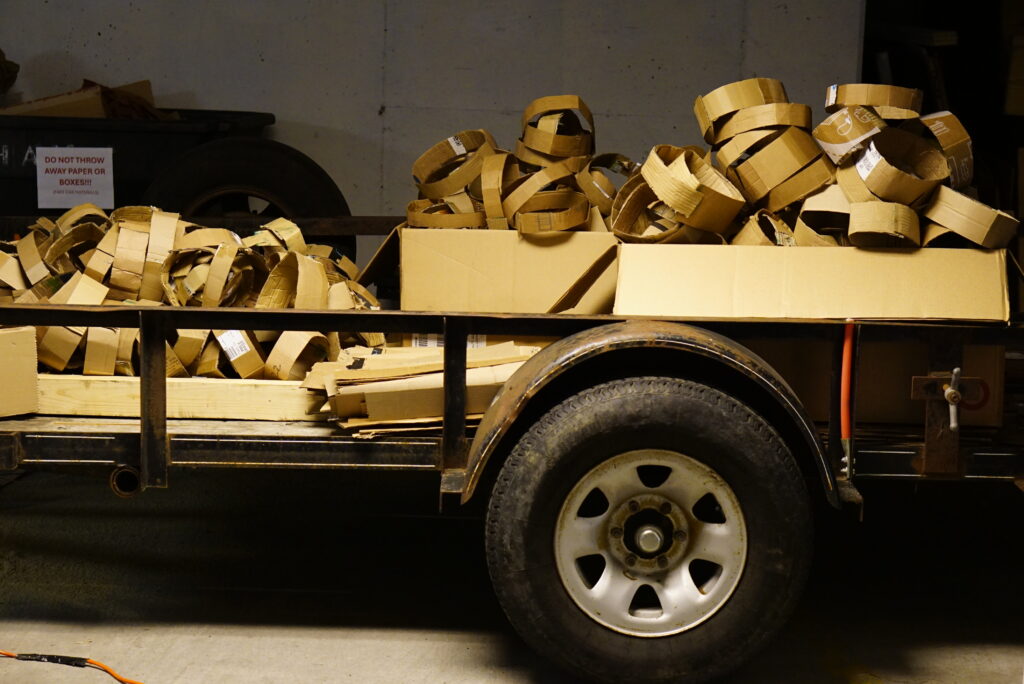Say hello to the Fart Car float from the 37th Orange Show’s Art Car Parade! The float was a definite highlight of the event, intended to spread awareness about colon health in an engaging and lighthearted manner.



Making the Small Intestines
This year, The Health Museum constructed a new set of small intestines for the colossal colon, using recycled materials and community collaboration. The float serves as a symbol of our commitment to reducing, reusing, and recycling, while promoting the interconnectedness between people, animals, and the environment.



The Fart Car paraded the colossal colon from the Health Museum’s permanent exhibit. We used traditional float-building methods to build a new set of small intestines for the colossal colon. This quickly became a community project as volunteers from UHD, local universities, high schools, nursing students, and more came together to sculpt the small intestines using recycled newspaper, cardboard, and more.
At The Health Museum, we believe it is important to be mindful of waste materials. We use the World Health Organization model of “One Health” which emphasizes the interconnectedness between people, animals, and the environment. For example, human waste materials like plastics often pollute waterways which in turn affect the fish and other wildlife in the water by contaminating them with so-called “microplastics”. This circles back to humans who ingest the fish and drink the contaminated water.
By thinking about One Health as a whole, we recognize that the health of humans is also connected to animals and the wider environment. As such, we aim to reduce, reuse, and recycle as much as possible and encourage all of you to do the same. Our Fart Car is made almost entirely out of reused or recycled materials as we try to minimize our environmental footprint.
“How was your poop today?”
“Hello! How was your poop today?” This was The Health Museum’s quirky way to open up discussions about digestive health and encourage dialogues on colon health. Guests responded by sharing their personal stories of their experience with cancer, Crohn’s disease, gut health, and more, in a lighthearted and vulnerable manner. We are excited to continue this awareness of colon health!




There are many fun facts about the colon, such as having trillions (that’s NINE zeros!) of microbes that live in your digestive system. Your colon is responsible for absorbing water, so it is very important to drink up and stay hydrated.
Special Thanks to MR Designs Hou
